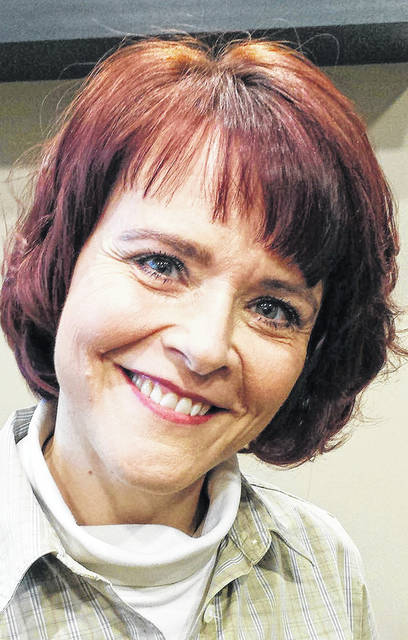
Do you have Covid fatigue?
You matter. Please know that you are not alone. We are all currently grappling with our mental health.
According to a May 4 article in The Washington Post, “Nearly half of Americans report the coronavirus crisis is harming their mental health,” according to a Kaiser Family Foundation poll. A federal emergency hotline for people in emotional distress registered a more than 1,000 percent increase in April compared with the same time last year. Roughly 20,000 people texted that hotline, run by the Substance Abuse and Mental Health Services Administration.
What is helping me cope with Covid? What I learned through the National Alliance on Mental Illness (NAMI) about how to accept my mental illness diagnosis ironically.
Dr. Cathy A. Tirrell, licensed clinical psychologist for Tirrell Forensic Assessment Services, believes the NAMI model is a good model for our current crisis.
“NAMI’s Stages of Emotional Response to Trauma is very applicable to the sustained trauma we are dealing with because of COVID,” she said.
NAMI stages of emotional response to trauma
1. Dealing with a catastrophic event. For example, many of us are still in shock when it comes to Covid.
“As the NAMI model indicates, denial is initially a protective response giving us time to process the painful events that have turned our lives upside down,” Tirrell said. “People need support, comfort, empathy, validation, coping tools, and help to find early intervention resources and mental health services. Those struggling may need timely therapeutic and psychiatric services through telehealth to get the care they need. Peer and family support services through organizations like NAMI are also critical.”
2. Learning to cope. “We can simultaneously be in various emotional stages while processing grief: denial, bargaining, anger, depression and acceptance. Individuals impacted need to vent their feelings, to have their feelings validated, and to access information about coping and grieving effectively.
“People can be experiencing multiple emotions, both grief and gratitude simultaneously, during this time. We may be grieving lost loved ones or grieving the loss of freedom, finances, contact with loved ones, and our usual routine. We mourn the loss of our lives before the pandemic.
“At this stage, we are gradually adjusting to our new reality or the new normal. As the NAMI model suggests, now is the time to prioritize self-care, to connect and network with others, to learn new skills, and to use resources to thrive rather than just survive.”
3. Moving to advocacy. “As we begin to accept our new reality, we can find greater meaning, sources of gratitude, and life lessons during the pandemic. We can prioritize our physical and emotional health, enjoy soul replenishing activities, and make self-care a part of our daily routine. Advocating for the needs of ourselves, our loves ones, and our community becomes more important than ever.
“During this stage, we may begin to refocus our negative emotions into productive activities. We can confront the systems that may have failed us in the past and find creative ways to advocate for the needs of ourselves and others. By taking action, we overcome feelings of powerlessness and helplessness.
”As the NAMI model suggests, moving to advocacy may simply be using healthier coping strategies in our daily lives or joining advocacy groups to help those most impacted by COVID,” Tirrell said.
Tirrell underscores the need for self-compassion. “This is a human process each person does his or her own way. If you can acknowledge your feelings, you can be gentler with yourself. People need to understand that acceptance means it is OK not to be OK at times,” she said.
According to Tirrell, admitting and managing your emotions is important to self-care and resilience. “Resilience refers to a person’s ability to adapt to stressful situations or crisis. Everyone is riding an emotional rollercoaster due to Covid and our resilience will ebb and flow as well.”
Help now. “Organized by emotion, How Right Now is a simple portal for people to access hotline information, inspirational videos, and free mental health coping resources,” said Dr. Amelia Burke-Garcia, director of the How Right Now initiative for the CDC Foundation.
”“Our objective was to help individuals particularly at risk during Covid — people 65 and older and their caregivers, people living with pre-existing mental and physical health conditions, people experiencing violence, and people experiencing economic distress.
“Our research taught us that people wanted their experiences validated. Individuals wanted to know that they were not alone. They also recognized, however, the importance of coping and being resilient during this time. How Right Now provides actionable steps people can take to improve their mental health and their ability to cope.”
Are you are battling anxiety, loneliness, depression, or suicidal thoughts? Please check out How Right Now, NAMI or the National Suicide Prevention Lifeline for help.
Choose life. Together we can do this, just like our ancestors before us.
Danei Edelen is the president for the NAMI Brown County Ohio affiliate. She is a mental health advocate for the Brown County Board of Mental Health & Addiction Services. For more information on NAMI Brown County Ohio, call 937-378-3504 ext. 102 or email [email protected].


